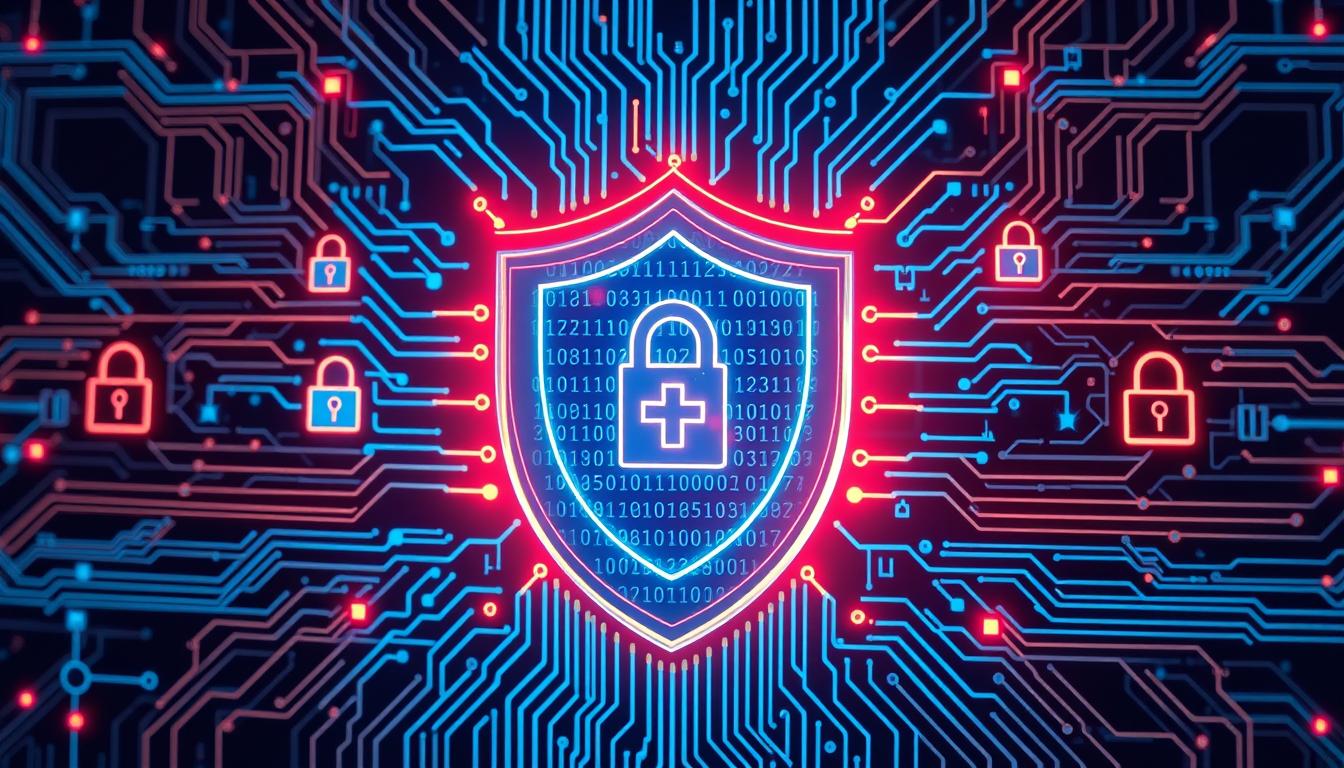The United States healthcare sector is getting ready for big changes in cybersecurity rules. In 2025, the Department of Health and Human Services (HHS) will introduce new HIPAA cybersecurity rules. This is the first major update in 11 years.
These new rules aim to fix big security gaps in electronic health information (ePHI). Cybersecurity compliance is now more important than ever. Healthcare organizations face new digital threats every day.
The proposed rules offer a detailed plan to keep patient data safe. They bring new security steps that will change how medical places handle digital info.
Crowley Media Group knows how tough these new rules will be. We’re experts in SEO, PPC, AI, and Automations. We’re here to help healthcare groups tackle these big cybersecurity challenges.
Key Takeaways
- First major HIPAA Security Rule update in 11 years
- Proposed implementation date set for January 6, 2025
- Estimated compliance costs reaching $34 billion over five years
- New rules focus on multi-factor authentication and enhanced encryption
- Significant reduction in potential patient data breaches expected
Understanding the New HIPAA Cybersecurity Rules
The healthcare world is seeing big changes in cybersecurity rules. There was a huge jump in data breaches from 2018 to 2023. The new HIPAA rules are a big step to fight off digital threats.

Healthcare groups now face a tough world of keeping data safe. The new rules aim to fix big holes in current security.
What Are the New Requirements?
The new rules bring big changes to how healthcare groups manage risks:
- Mandatory multifactor authentication for all system access
- Expanded definition of security incidents
- Enhanced protection for electronic medical records
- Stricter patch management standards
Key Changes to Existing Regulations
Healthcare providers will have to meet stricter rules. The new rules remove old differences, affecting about 100,000 groups and their partners.
Timeline for Implementation
Groups need to get ready for big updates. The proposed rule is open for comments until March 7, 2025. Critical steps include:
- Conduct comprehensive risk assessments
- Develop robust security incident response plans
- Implement multifactor authentication
- Perform annual compliance audits
These updates show the healthcare industry’s strong focus on keeping patient data safe in today’s digital world.
Impact on Healthcare Organizations
The new HIPAA cybersecurity rules are changing how healthcare groups protect their digital data. Cyberattacks are a big threat to patient safety and data. These rules are a big step forward in keeping networks safe.
Healthcare providers have big challenges in setting up strong privacy measures. The cost is high, with a $9 billion price tag for the first year.
How Healthcare Organizations Will Be Affected
- Small medical practices will need to invest between $100,000 to implement new security measures
- Large medical groups might face multi-million dollar compliance costs
- Mandatory cybersecurity standards will replace previous optional guidelines
Key Compliance Challenges
Ransomware defense is a big focus now. Organizations must:
- Implement multi-factor authentication
- Develop robust incident response plans
- Assess third-party vendor security risks
- Regularly test and update cybersecurity protocols
Strategies for Successful Adaptation
Healthcare groups can adapt by focusing on proactive cybersecurity. Microsegmentation and thorough risk assessments are key to protecting patient data.
It might seem tough, but these steps are vital. Healthcare data breaches have jumped by 1,002% from 2018 to 2023.
Best Practices for Compliance

Healthcare data protection is complex. It needs a strategic plan. Healthcare groups must follow strict rules to keep patient info safe and meet legal standards.
Training Your Staff Effectively
Teaching staff well is key for handling cyber threats and following rules. Healthcare groups should create detailed training plans. These plans should teach more than just the basics:
- Make cybersecurity training a must every year
- Offer security lessons based on each job
- Use fake phishing and social engineering tests
- Have clear steps for reporting incidents
Implementing Modern Technology
Modern tech is vital for protecting healthcare data. Important tech includes:
- Strong encryption for sensitive health info
- Systems that check identities with more than one way
- Tools that watch for threats in real time
- Safe ways to store data in the cloud
Regular Risk Assessments and Audits
Staying ahead of risks is crucial for keeping up with cybersecurity rules. Groups should:
- Do quarterly detailed risk checks
- Do yearly tests to find weak spots
- Keep security rules up to date
- Keep records of all checks and fixes
By following these best practices, healthcare groups can improve their cyber security. They can better protect patient data and show they follow the rules.
Enhancing Patient Data Protection
The healthcare world is changing fast, thanks to digital tech. This change means protecting electronic health records is more important than ever for healthcare providers.

Recent numbers show a scary truth: 67% of healthcare groups faced ransomware attacks in 2024. This big jump shows how vital strong privacy measures and ways to stop data breaches are.
Understanding Patient Privacy Rights
Patients have basic rights to their health info. These rights include:
- Confidential handling of personal health information
- Control over who accesses medical records
- Right to request corrections to health information
- Protection against unauthorized data sharing
Tips for Secure Patient Communication
Healthcare groups can take steps to make electronic health records safer:
- Implement end-to-end encryption for patient communications
- Conduct regular staff training on cybersecurity protocols
- Use multi-factor authentication for system access
- Perform frequent vulnerability scans
Proactive steps are key to stopping data breaches and keeping patient trust. By focusing on strong security, healthcare providers can lower risks to electronic health info.
Resources for Healthcare Professionals

Understanding HIPAA cybersecurity compliance can be tough. Healthcare workers have many resources to stay up-to-date and ready for new rules.
Government and Regulatory Websites
Key sites for network security and risk management are:
- Health and Human Services (HHS) Security Risk Assessment Tool
- National Institute of Standards and Technology (NIST) Cybersecurity Framework
- Cybersecurity and Infrastructure Security Agency (CISA) Vulnerability Scanning Resources
Industry Support Organizations
Healthcare pros can get help from specific groups focused on cybersecurity:
- American Medical Association (AMA) Cyber Defense Materials
- Health Information Trust Alliance (HITRUST)
- Healthcare Information and Management Systems Society (HIMSS)
Utilizing Crowley Media Group Services
Crowley Media Group provides detailed support for cybersecurity plans. They are experts in SEO, PPC, AI, and automation. They help healthcare groups handle complex rules.
Want to boost your cybersecurity? Call Crowley Media Group at (916) 572-9755 or check out crowleymediagroup.com. Get a consultation and change how you handle network security.
Contacting Crowley Media Group for Support
Dealing with cybersecurity in healthcare is tough. Crowley Media Group is here to help. They know a lot about SEO, AI, and digital strategies. They offer support for keeping patient data safe and managing digital risks.
Benefits of Partnering with Experts
Healthcare groups face big cybersecurity challenges. Crowley Media Group has solutions for these problems. They know a lot about HIPAA and help protect patient info.
Schedule a Consultation Today
Start protecting your data with Crowley Media Group. They offer custom consultations for your security needs. Their goal is to make your digital space safe and compliant.
Get In Touch: Call Us at (916) 572-9755
Want to improve your cybersecurity? Visit crowleymediagroup.com or call (916) 572-9755. Crowley Media Group is ready to help you with digital security and compliance.
FAQ: New HIPAA Cybersecurity Rules 2025
What are the key changes in the new HIPAA cybersecurity rules for 2025?
When will these new cybersecurity rules take effect?
How will these rules impact small healthcare clinics?
What are the primary goals of these new cybersecurity regulations?
What are the potential consequences of non-compliance?
How can healthcare organizations prepare for these new rules?
What types of cybersecurity measures are recommended?
How do these rules enhance patient data protection?
Are there resources available to help understand these new regulations?
What is the biggest challenge in implementing these new rules?
Source Links
- https://health-isac.org/new-hipaa-cybersecurity-rules-pull-no-punches/
- https://www.morganlewis.com/pubs/2025/01/hhs-proposes-major-2025-update-to-hipaa-security-rule
- https://hyperproof.io/resource/proposed-new-hipaa-rules-2025/
- https://www.hklaw.com/en/insights/publications/2025/01/proposed-hipaa-security-rule-shifts-warrant-study-and-comment
- https://www.cov.com/en/news-and-insights/insights/2025/01/hhs-issues-notice-of-proposed-rulemaking-to-update-the-hipaa-security-rule
- https://www.illumio.com/blog/2025-hipaa-security-updates-what-healthcare-organizations-need-to-know
- https://www.darkreading.com/vulnerabilities-threats/hipaa-security-rules-pull-no-punches
- https://www.federalregister.gov/documents/2025/01/06/2024-30983/hipaa-security-rule-to-strengthen-the-cybersecurity-of-electronic-protected-health-information
- https://www.itsasap.com/blog/hipaa-security-best-practices
- https://www.exabeam.com/explainers/hipaa-compliance/4-key-hipaa-requirements-and-compliance-best-practices/
- https://tuxcare.com/blog/new-hipaa-security-rules-enhancing-healthcare-cybersecurity/
- https://csrc.nist.gov/files/pubs/sp/800/66/r2/final/docs/sp800-66r2-cybersecurity-resources.pdf
- https://www.ama-assn.org/practice-management/sustainability/physician-cybersecurity
- https://www.ftc.gov/business-guidance/resources/complying-ftcs-health-breach-notification-rule-0
- https://crowleymediagroup.com/resources/navigating-privacy-laws-in-health-care-marketing/
- https://natlawreview.com/article/ocr-imposes-fines-health-plan-business-associate-and-physician-group-related-to
- https://www.esentire.com/how-we-do-it/industries/food-supply-cybersecurity








